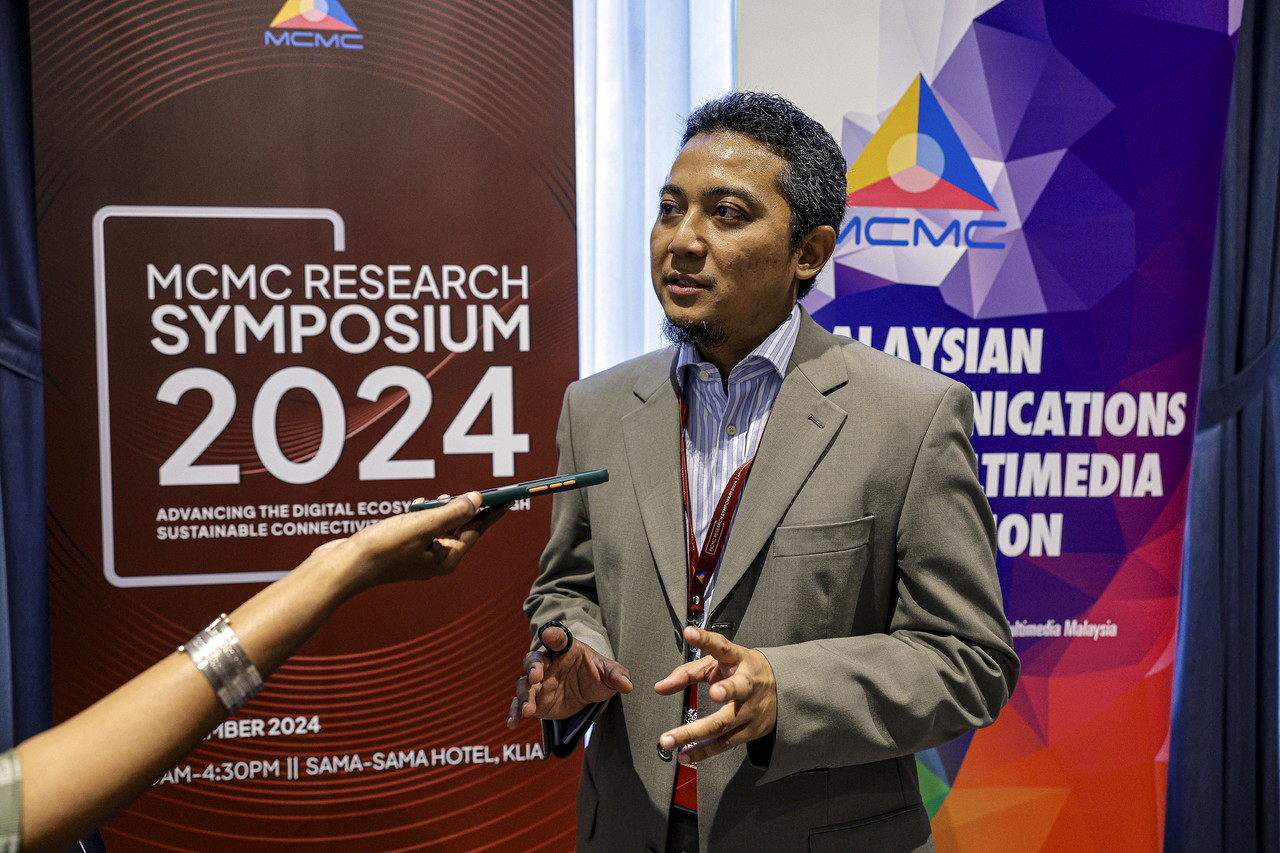5G Adoption in Malaysia Expected to Mature in 10 to 15 Years - Expert

SEPANG (Selangor, Malaysia), Sept 5 (Bernama) -- Malaysia’s transition to 5G technology is expected to mature in the next 10 to 15 years, said Universiti Teknologi Malaysia (UTM or a Malaysian public university) lecturer Dr Azizul Azizan.
He said various factors contributed towards the maturity process, including the manufacturing and production ecosystem of equipment related to 5G technology and public acceptance.
"The transition will only occur if people buy and use (5G) equipment at home or work. As long as the equipment is in the workplace or there is no 5G, then we will not utilise 100 per cent of the technology’s capabilities," he said.
He told Bernama this on Wednesday on the sidelines of the Research Symposium 2024, which was organised by the Malaysian Communications and Multimedia Commission (MCMC) here.
Deputy Communications Minister Teo Nie Ching on July 3 reportedly said that 5G coverage in populated areas nationwide has reached 81.7 per cent, following the completion of 7,114 5G sites.
She said that the construction of 5G networks was concentrated in urban areas with high economic activity while expansion to other areas including rural areas has begun and will continue.
Meanwhile, Azizul believed that China is 'dominating' the widespread adoption of 5G ahead of Europe and the United States.
He explained that this was due to the stimulation of the smart device production ecosystem, including in the semiconductor sector of the country.
“... we need to realise that 5G is currently focused on the industrial sector, equipment, robots and so on and not like 3G or 4G whose target focus is only on humans and not objects.
"It's just that the study on 6G (globally) has begun, so I think we may not have time to fully utilise 5G (in Malaysia) and we move to 6G which will be adopted by society," he said.
The lecturer at the Faculty of Artificial Intelligence explained that network providers also have a huge responsibility in addressing 5G transition issues so that the capabilities of the technology can be fully utilised in line with the government's intention to drive the country’s digital transformation.
"Not all technology is perfect, so network providers need to always be sensitive to the needs of consumers," he said.
The 2024 Research Symposium highlighted the results of 10 research projects funded by the Digital Society Research Grant (DSRG) conducted by Cycle 1 and Cycle 2 cohorts of 2023.
A total of 230 stakeholders from various sectors including communications and multimedia, industry practitioners, government representatives, academics, and activists attended the symposium themed 'Advancing the Digital Ecosystem through Sustainable Connectivity.'
Apart from Azizul, Dr Thanuja Rathakrishnan from Taylor's University and Dr Suthashini Subramaniam from Universiti Tunku Abdul Rahman (UTAR) also shared their views in a session titled 'Sustainable Connectivity: Advancing Digital Frontiers' which is a platform to discuss the assessment of 5G in the smart industry and assess the impact of the implementation of the National Digital Network Plan (JENDELA).
-- BERNAMA





